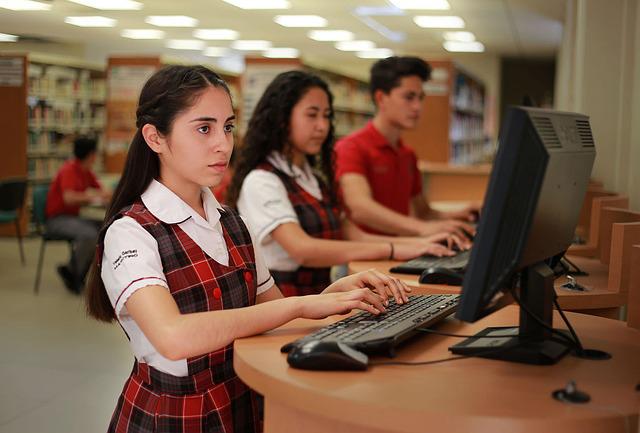In recent years, the educational landscape has undergone a significant transformation, with online classes becoming an integral part of the learning experience. The convenience and accessibility they offer have made them a popular choice for students of all ages. However, this shift from traditional classroom learning to virtual platforms has raised important questions about how classes affect students. In this comprehensive exploration, we will delve into various aspects of online education and closely examine how online classes affect students’ academic performance, well-being, and future prospects.
Understanding How Online Classes Affect Students
To comprehend the influence of online classes on students, we must consider several key factors:
1. Academic Performance and How Online Classes Affect Students
The impact of online classes on academic performance can vary significantly depending on various factors.
a. Flexibility and Customization
Online classes provide students with the flexibility to customize their learning experiences. They can often progress at their own pace, review materials as needed, and explore additional resources that align with their interests. This flexibility can positively affect how classes affect students’ academic performance.
Do you guys know now you can hire someone to take my online class for me by simple going to ScholarlyHelp, the best academic service providers!
b. Self-Motivation and Time Management
However, the transition to online learning demands a higher level of self-motivation and time management. Students must be proactive in scheduling study sessions, meeting deadlines, and staying engaged with course content. Those who struggle with self-discipline may find it challenging to maintain their academic performance and might wonder how online classes affect students in terms of their motivation.
c. Lack of In-Person Interaction
The absence of in-person interaction with professors and peers can sometimes lead to a sense of isolation. Building meaningful relationships and seeking immediate clarification on doubts can be more challenging in the virtual classroom, potentially affecting academic performance. This prompts questions about how classes affect students’ social interactions and, subsequently, their educational outcomes.
2. Psychological and Emotional Well-Being in Online Classes
Online classes have not only academic but also psychological and emotional implications for students.
a. Stress and Isolation
The pressure of managing coursework independently can lead to stress and feelings of isolation. Students may miss the social interaction and support that traditional classrooms provide, which can impact their overall well-being and, subsequently, their academic performance. It’s essential to examine how classes affect students’ mental health.
b. Screen Fatigue and How Online Classes Affect Students Physical Well-Being
Extended screen time can result in digital eye strain and fatigue, negatively affecting both physical and mental well-being. Students may experience increased stress levels and a decreased capacity to focus on their studies. This raises questions about how online classes affect students’ physical health and their overall educational experience.
c. Balancing Responsibilities and How Online Classes Affect Students’ Lives
Many online students juggle multiple responsibilities, such as work and family, which can lead to increased stress and time management challenges. These additional stressors can influence their overall well-being and, in turn, their academic performance. Understanding how online classes affect students’ ability to balance various aspects of their lives is crucial.
The Future Prospects of Students in Online Classes
As online education continues to evolve, it is crucial to consider its long-term impact on students’ future prospects.
1. Skill Development and How Online Classes Affect Students’ Careers
Online classes often emphasize digital literacy, time management, and self-discipline, skills that are increasingly valuable in today’s job market. By acquiring these skills, students are better prepared for future career opportunities, prompting questions about how online classes affect students’ career prospects.
2. Career Advancement through Online Classes
Online education can provide opportunities for career advancement and skill enhancement, making it an attractive option for professionals seeking to further their education. It allows individuals to balance their existing work commitments with their academic pursuits, prompting questions about how online classes affect students’ career trajectories.
3. Preparing for an Evolving Job Market through Online Classes
The job market is continually evolving, with increasing demand for remote work and digital skills. Online education prepares students for this changing landscape, ensuring they are competitive in a world that increasingly relies on technology and remote collaboration. Understanding how online classes affect students’ readiness for the job market is vital.
Harnessing the Benefits of Online Education
Despite these challenges, online classes offer a host of benefits that can empower students to excel academically and prepare for the future.
1. Accessibility and Flexibility
Online classes provide unparalleled accessibility and flexibility, allowing students to pursue their education on their own terms. This makes education accessible to a wider audience, including those with work or family commitments.
2. Skill Development
Online classes promote valuable skills such as digital literacy, self-discipline, and time management, which are essential in today’s rapidly evolving job market. These skills enhance students’ readiness for career opportunities.
3. Personalized Learning
The flexibility of online classes enables students to tailor their learning experiences to their needs and interests. They can explore additional resources, delve deeper into subjects they are passionate about, and adjust their pace to match their learning style.
4. Global Engagement
Online classes often attract a diverse student body from around the world. Engaging with peers from different backgrounds provides students with a global perspective and fosters cultural competency.
5. Career Advancement
Online education offers professionals the opportunity to advance their career and skills. They stay competitive in their fields.
Incorporating these additional insights into the middle part of the content will provide a more comprehensive understanding of the challenges and benefits of online education for students.
Conclusion: Navigating the Impact of Online Classes on Students
In conclusion, online classes have revolutionized the educational landscape, offering unprecedented accessibility and flexibility. They have the potential to enhance students’ academic performance and provide valuable skills for their future careers. However, they also present unique challenges, from self-motivation to the absence of in-person interaction, which can affect both academic performance and well-being. It is essential to explore how online classes affect students comprehensively.
As we move forward in the digital age, it is crucial to strike a balance between the advantages and challenges of online education. By addressing how online classes affect students’ academic performance, well-being, and future prospects, we can harness the full potential of online classes and ensure that they continue to empower students on their educational journeys.
Online education is not a one-size-fits-all solution, but with thoughtful adaptation and support, it can be a transformative force in the lives of students, enhancing their access to knowledge and opportunities in the 21st century. Understanding how online classes affect students is vital for educators, institutions, and learners themselves, shaping the future of education.







